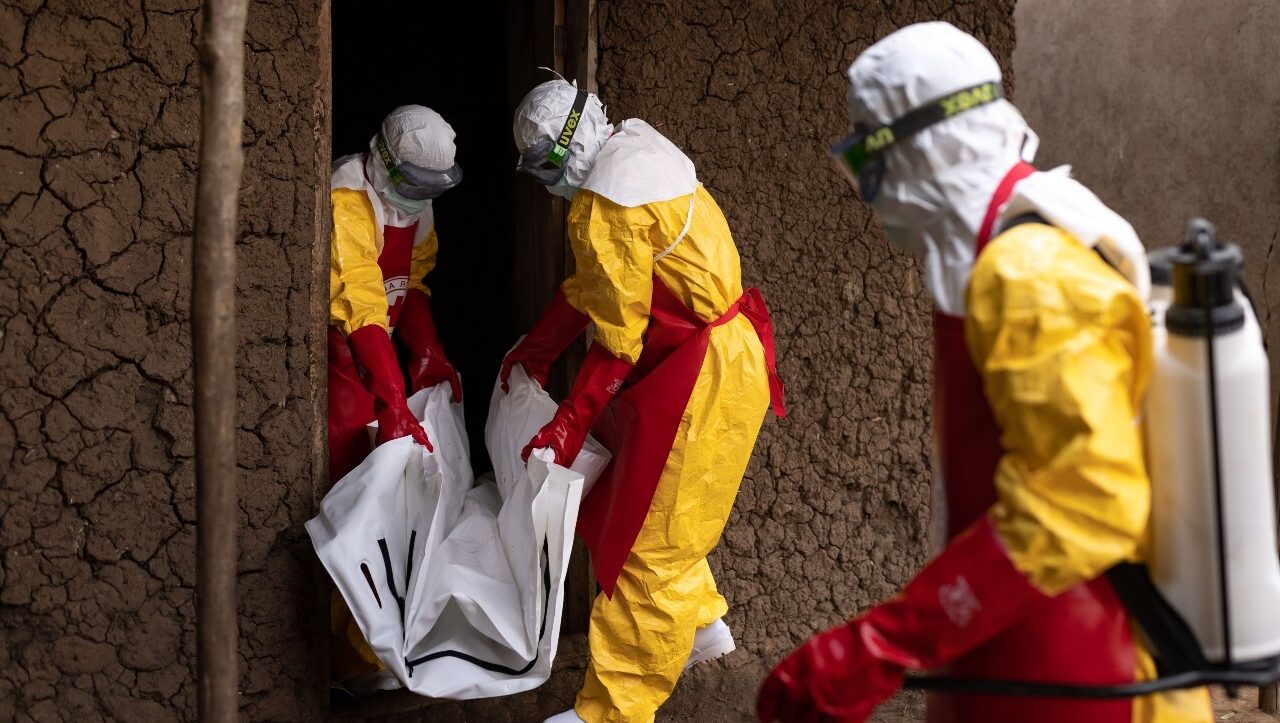Uganda announces two district closures as Ebola cases rise

(CNN) – Ugandan President Yoweri Museveni has announced an immediate three-week lockdown in two high-risk areas as the country grapples with a surge in Ebola infections.
In a televised address on Saturday, Museveni said all movement in and out of Mubindi and Kasanda districts would be halted, although cargo trucks were allowed in and out of the districts.
A curfew will also be imposed. She added that houses of worship, bars, gyms, saunas and other places of entertainment will be closed, but schools will remain open.
“Given the seriousness of the problem and to prevent further spread and protect lives and livelihoods, the government is taking additional steps that require action from all of us,” Museveni said.
The Ugandan Ministry of Health will also increase contact tracing and assist local health centres.
Red Cross workers carry a body bag from inside a home of suspected Ebola on October 13, 2022 in Mubindi, Uganda. (Luke Dray/Getty Images)
Ebola is a rare and deadly disease. The US Centers for Disease Control and Prevention (CDC) says it spreads through direct contact with body fluids and is not transmitted through airborne viral particles.
There is no cure and no approved vaccine, despite concerted efforts to devise a vaccine.
Speaking at a press conference earlier this month, WHO Director-General Tedros Adhanom Ghebreyesus said that vaccines used successfully to curb the recent Ebola outbreak in the Democratic Republic of the Congo are not effective against the type of Ebola virus now circulating in the country. Uganda.
“However, there are several vaccines in various stages of development against this virus, two of which could start clinical trials in Uganda in the coming weeks, pending regulatory and ethical approvals from the Ugandan government,” Tedros said.
Uganda has experienced four Ebola outbreaks. It left more than 200 deadliest dead in 2000.

A poster with Ebola prevention measures on October 14, 2022 in Mubindi, Uganda. (Luke Dray/Getty Images)
Museveni announced an outbreak of Ebola in September after a case of the relatively rare strain was confirmed from Sudan and cases began to rise in areas.
The latest outbreak has so far claimed 29 lives, while 63 cases have been registered.
According to the CDC, a person with Ebola “is not contagious until symptoms appear, which include fever, headache, muscle and joint aches, fatigue, loss of appetite, gastrointestinal symptoms, and unexplained bleeding.”

“Professional problem solver. Subtly charming bacon buff. Gamer. Avid alcohol nerd. Music trailblazer.”




:quality(75)/cloudfront-us-east-1.images.arcpublishing.com/elcomercio/6NEH6FMKYBCU7JJWZ5GVRZKTRM.jpg)
/thumbs.vodgc.net/1-14-FnXFWZ1684253239488_1080P.jpg)





